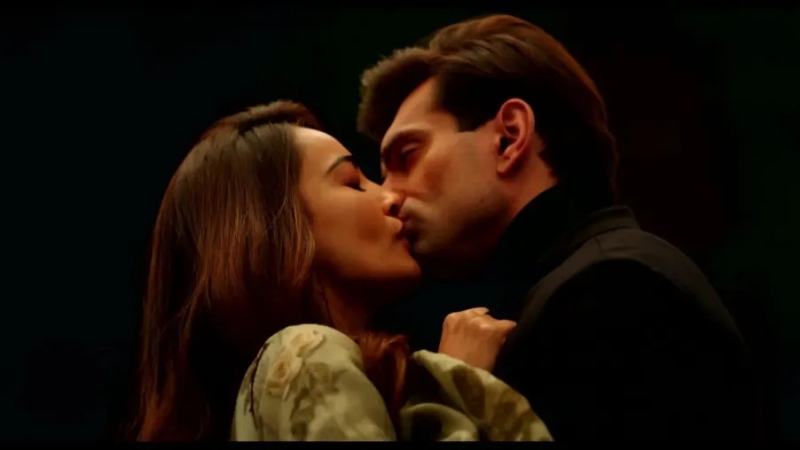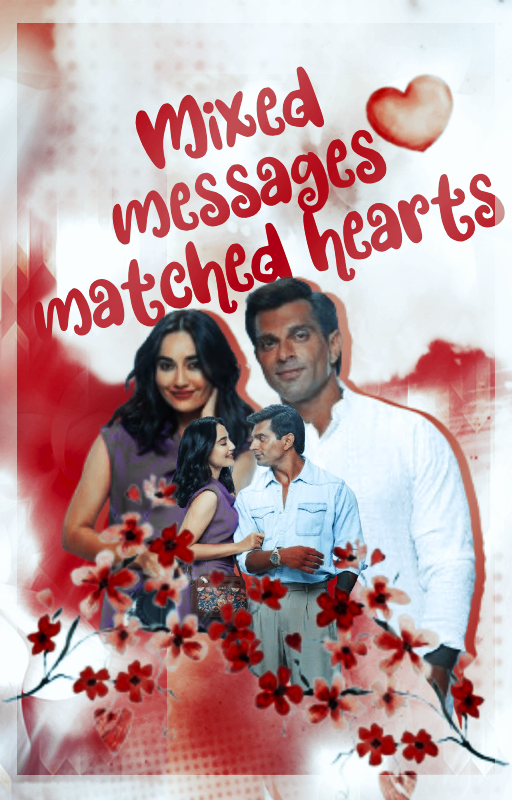Chapter 22: Asad
MY JAW SHAKES. And so does the camera. I take a deep breath to get a steady grip. And pull myself together.
"Asad, what is it?" Zoya asks.
Some of the others ask me stuff, too. But I can't really answer. I mean, how do you even put it into words?
I zoom in on the series of pictures, somehow still glued to the wall. They're done in a mix of paint and crayon—a patient chained to a bed; a lady dancing with this huge-ass smile across her face, despite the shock treatment tabs stuck to her forehead; a bunch of patients carrying a casket out to the cemetery; a little boy sitting in a hydrotherapy tub, his teddy bear resting atop the canvas cover; a naked patient crouched in the corner of a stark and empty room; a girl caught in a spiderweb made of barbed-wire spikes.
And a woman with the freakiest eyes I've ever seen. She doesn't have a mouth—just those eyes, and a long, pointed nose. When I zoom in closer to capture those eyes, I notice it—the number seventeen sitting there in place of the pupil.
"Are you okay?" Zoya asks. She puts her hand on my shoulder.
I nod, trying to take it all in—all these drawings and what they mean.
"They're amazing, aren't they?" she continues. "Like snapshots of the past—of what it was like to live here."
I nod, taking a second look at the casket drawing, remembering how I read somewhere that sometimes they made the patients build caskets and make grave markers as part of their therapy.
"You getting soft on us, man?" Imran asks.
I clear my throat and shake my head, still trying to get a grip, remembering how they sometimes made the patients bury the caskets, too. Only sometimes the caskets were buried too shallow and got washed down the hill in the rain.
"Jackpot," Imran says, trying to peel one of the pictures off the wall—the one with the barbed-wire web.
"Lay off!" I shout, even surprising myself. I look at Zoya to see if I've scared her. I think I have. Her lips are parted and her eyes are wide. "I'm sorry," I say, taking a step back, trying to keep my cool. "But we can't just take this stuff."
"What's wrong?" Tanveer asks.
"I just don't want anybody to sell this stuff, okay?"
"How about the works in progress?" Imran asks. He points to the unfinished paintings still sitting on their easels.
"None of it," I snap. "I don't want anybody taking or selling any of the stuff they find in this hospital—are we clear?"
"Okay. Why? What's going on?" Tanveer asks, her voice all soft, like maybe I'm the one who's crazy now.
"Yeah," Imran says. "What's the big deal?"
"The big deal is that it isn't ours."
"Well, it isn't theirs anymore either," Imran says. "This place is going to be leveled next week. It's just going to be a pile of trash then."
"So let it," I say. "That's not up to us."
"It's not up to you either. I don't have parents who buy me a brand-new truck every year. I could use the cash." Imran tugs a bit harder on the picture and ends up ripping off a corner.
"Don't be an a**hole," I say, taking a step toward him.
Tanveer gives Imran a pointed look, and he backs away from the picture—from what he's already done. "This sucks," he says.
"Thanks," I say, unclenching my teeth, feeling myself calm down a bit.
"Drrrama Queen," Humaira says, lamely trying to cough out the words.
"Sorry I didn't bring my Oscar," Ayaan whispers, like I can't hear him.
But I could care less what they think. Maybe I just need some air. Or maybe this place is really starting to get to me. I mean, it's just so weird. At first you don't really notice it too much—walking over the patient files just strewn all over the floor; seeing barred-up windows and scratches on the walls from restraints.
And the way this place was just left: trays stacked up in the cafeteria still waiting to get collected; an unfinished game of Scrabble left on a rec room table; a book on somebody's nightstand, the bookmark still wedged inside.
And all this unfinished artwork.
I mean, after a while it just kind of hits you—that these people were real, that they really lived here. And you can't help but wonder what's happened to them now . . . to these people whose histories are being treated like useless sh*t now.
It makes me wonder if treating people like useless sh*t became the norm here.
I stare back at the artwork—at those eyes—almost unable to look away. I mean, as cheese ball as it sounds, the art really shows what they felt like—a number, a prisoner, a slave, a head case.
It only makes me want to make this movie, to get it shown, all the more.
Regardless of whether or not I win the contest.






124